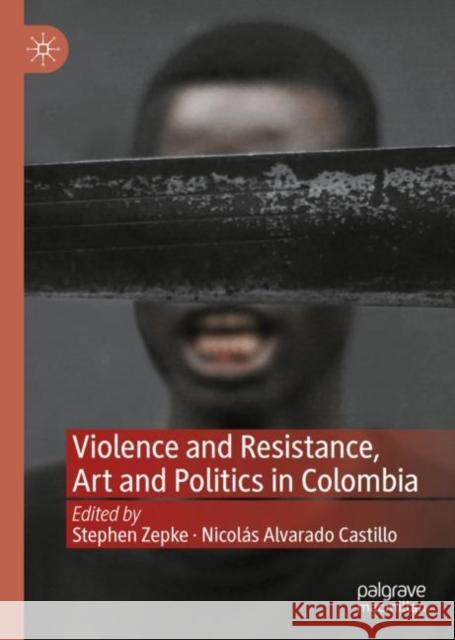Violence and Resistance, Art and Politics in Colombia » książka
Violence and Resistance, Art and Politics in Colombia
ISBN-13: 9783031103254 / Angielski / Twarda / 2023 / 250 str.
Violence and Resistance, Art and Politics in Colombia
ISBN-13: 9783031103254 / Angielski / Twarda / 2023 / 250 str.
(netto: 498,38 VAT: 5%)
Najniższa cena z 30 dni: 462,63
ok. 16-18 dni roboczych.
Darmowa dostawa!
This book explores the historical and contemporary connections between art and politics in Colombia. These relations are unique because of the ways in which they are saturated by violence, as the country has passed through conquest, struggles for Independence, fighting between political factions, civil war, paramilitaries, narco-traffickers and state violence. This seemingly unending stream of violence gives art in Colombia one of its main themes. The lavishly illustrated essays, written by Colombian authors, examine Colombian visual arts, music, theatre, literature, cinema, indigenous arts, popular culture, militant publications and recent protest movements, analysing them with tools drawn from contemporary philosophy and theory. Approaches include decolonisation theory, cosmopolitics, anthropology after the ontological turn, Colombian philosophy, feminism, and French theory. The essays all offer powerful understandings of how art has not only been complicit in perpetuating political violence in Colombia, but also how it has been a vital form of analysis and resistance.
This book explores the historical and contemporary connections between art and politics in Colombia. These relations are unique because of the ways in which they are saturated by violence, as the country has passed through conquest, struggles for Independence, fighting between political factions, civil war, paramilitaries, narco-traffickers and state violence. This seemingly unending stream of violence gives art in Colombia one of its main themes. The lavishly illustrated essays, written by Colombian authors, examine Colombian visual arts, music, theatre, literature, cinema, indigenous arts, popular culture, militant publications and recent protest movements, analysing them with tools drawn from contemporary philosophy and theory. Approaches include decolonisation theory, cosmopolitics, anthropology after the ontological turn, Colombian philosophy, feminism, and French theory. The essays all offer powerful understandings of how art has not only been complicit in perpetuating political violence in Colombia, but also how it has been a vital form of analysis and resistance.











